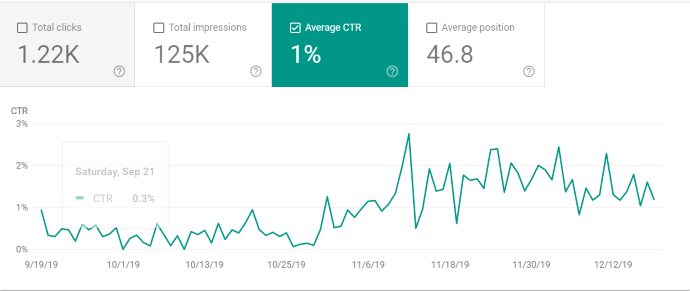
Black Friday vs. Cyber Monday can be boiled down to one option: either online or brick-and-mortar. Online sales, as with Black Friday, often have better deals, but many brick-and-mortar stores offer the same deals on both days. And because of their online nature, brick-and-mortar stores will likely be less crowded on Monday. So which is better? Learn more!
Cyber Monday has better deals
If you're looking for a great way to save money on electronics, Cyber Monday is the day to go. Cyber Monday deals are more popular than Black Friday. Selected items could be up to 60% off Cyber Monday is also a great day to purchase new clothing. Some websites offer up to 60% discount on certain items. Cyber Monday coupons can be used by you if they are emailed to your email. Check your email carefully and make sure you read all the terms and conditions. Cyber Monday often offers free shipping for large purchases. This is because clothing costs less than other items during holidays.
Cyber Monday will offer better deals for certain brands than Black Friday. Many electronics, including the Apple Watch, Xbox One, as well as many others, will be on sale at steep discounts. Amazon, Newegg, and eBay will all have better deals than Black Friday. You might also be interested in accessories like memory cards and cameras. Cyber Monday is the perfect time to shop for accessories and gaming systems.

Black Friday offers holiday spirit
Cyber Monday and Black Friday have a lot to do with the products and the availability of special discounts. Cyber Monday's deals are more diverse than Black Friday's. Black Friday was once all about in-store sales. Cyber Monday works best for larger items and high-tech goods, while Black Friday suits smaller gifts and office equipment.
In a recent study, more than half of US consumers cited convenience as the main reason for shopping on Black Friday. This number was even higher for those 65 years and over. More than half cited convenience as the deciding factor, with delivery deals coming in second. Only 24% of shoppers between 18 and 34 cited holiday factors as their primary reason for shopping on a particular day. Despite these differences, both days offer many benefits to shoppers.
Cyber Monday can be done online
Cyber Monday is entirely online. Black Friday may be a brick and mortar event, but Cyber Monday is entirely digital. Many online stores, such as Amazon, have jumped on the bandwagon. Amazon, for instance, offers a new deal each 10 minutes for the duration of the week. The retailer is currently offering a 50% discount to LeapFrog learning toys, as well as a 40 inch HD Sony television below $300 and a $50 discount to Nest Learning Thermostat. Amazon is also hosting a fire sale on unlocked Fire Smartphones. Unlocked Fire smartphones have been a major disappointment for Amazon. So, a fire sale is welcome. Target and Best Buy have teamed up to offer Cyber Deals. Some of these retailers offer gift vouchers with their TV purchase, while some others have reduced prices for many other items.
Cyber Monday was founded in the United States. However, it is now an international event that is used by many ecommerce companies to drive sales. Cyber Monday is a time when people wait for the Internet to speed up their work. Another theory claims that Cyber Monday is a more popular day to buy a product than any other day. In the beginning of the 21st Century, there weren't any smartphones, tablets or high-speed internet options.

Limited-stock challenges
Black Friday and Cyber Monday have a reputation for having limited stock. Although neither holiday shopping event is without its challenges and pitfalls, both are equally important to retailers. One is that omnichannel ecommerce sellers are likely to face less competition on Monday than on the previous business day. On the other hand, brick-and-mortar retailers will see less foot traffic on Monday.
FAQ
Are rewards and insider programs worth the effort?
Rewards are great, but they're not always worth the effort. If you do decide that you want to join an online program you should make sure that there is value. It is important to understand the cost of your online program.
Be careful if you sign up for a reward card because of a great signup bonus. Sometimes these bonuses won't be worth the effort to apply for one.
Also, before joining a rewards program, ask yourself why you want to join. Many times people join just because their friends are doing it. You won't enjoy the company's products or services if that is the case.
How can I avoid being conned when shopping online?
Be vigilant when you shop online. Always read reviews and look up customer feedback before making a purchase. Don't send sensitive financial information by email. Instead, go to a secure site like PayPal. You can rest assured that your information will be safe by using this secure site.
What are the benefits of having a shopping list?
A shopping list serves one purpose: to remind you of what you need for grocery shopping. It saves you the time of searching through the store for forgotten items. A shopping list also makes it easier to find an item if you are unsure which aisle it is on.
In addition, a shopping list will save you money. You can save money by having a shopping list.
Are there other things I should be aware of when shopping for clothes online
Before buying clothes online, you need to be aware of several things. First, be sure to measure yourself. This may seem obvious but many companies don't offer this information, so you might have a hard time guessing.
Remember to be aware of shipping charges. Shipping costs will vary depending upon the item ordered. Also, make sure you know exactly where your package is going. Some items ship direct from the manufacturer. Other items go through a third party warehouse. This can have an impact on delivery times.
Finally, read reviews carefully. There are many negative experiences. Don't allow someone else's experience to influence your own.
How can I protect my privacy online?
It is important that consumers know the information they are sharing with companies like Amazon.com. Consumers should always ask themselves if they want to share personal information with companies like Amazon. If you don’t wish to share this type of information with Amazon, you might need to limit your shopping choices on sites where you feel safe sharing your private data.
It is better to shop online with credit cards than without.
Credit card companies offer a variety of benefits, including rewards programs, free shipping and cash back. You also have protection from fraud. They don't have fees, which is why they are better than debit cards.
Customers who want to pay off their balance quickly can also benefit from credit cards. Credit cards also let you make purchases, without worrying how much money you still have in your account.
Can I order clothes online and have them returned?
Absolutely! It's actually easier than ever to order clothing online. All major retailers offer free returns. Simply print off a label and drop it in the mail.
But, you won't get a refund until the item arrives. So, if you change your mind about the product, you'll need to send it back.
Statistics
- An approximately 90% increase in price affords Hotel X the opportunity of extreme profits under severe circumstances. (dos.ny.gov)
- The vast majority only change a password to protect privacy a few times a year (27 percent) or, more likely, never (35 percent). (pcmag.com)
- All items on AliExpress have an estimated delivery time on the product page, and it's usually anywhere from 20 to 60 days. (makeuseof.com)
- Beyond that, you'll be liable for a 25% import tax. (makeuseof.com)
External Links
How To
What are safe shopping techniques online?
Secure online shopping is something that everyone who shops online should know. It's important to know how you can shop at different sites without being scammed.
If you are looking for the best ways to buy items online, read on! This article explains all the tricks and tips that make sure you don't fall victim to scams.
-
Do your research. Before you decide to shop online, it's essential to do your homework first. Check out customer reviews, get feedback, and seek recommendations from your friends.
-
It's worth shopping around. Compare prices from several sellers to determine if a store is trustworthy. Also, consider using price comparison apps like Google Shopping and Amazon Price Checker. These tools allow you to see which retailers offer the lowest prices.
-
Watch out for red flags. If you are browsing product pages, look out for red flags. For example, many fake sites contain misspelled words and grammatical errors. They often sell fake or incomplete products.
-
Beware of popups. Pop-up windows are used by some websites to collect credit card numbers and passwords. When you see one of these pop-ups, click "escape" to close it immediately or choose another browser window.
-
Ask yourself questions. Consider the following questions when you visit a website: Is it trustworthy? Does it offer what I want? Do I have the ability to trust the people who run the site?
-
Don't give away your personal information. Unless you initiated the transaction or provided financial information, do not give out your Social Security number, bank account numbers, or credit card details by phone or email.
-
Avoid clicking on emails that contain links. It's easy for an email to contain a link that leads to a phishing page. This type of fraud can only be avoided by opening emails from trusted sources, such as banks.
-
Use strong passwords. Strong passwords should include symbols, numbers, letters. Keep your password confidential and don't share it with anyone else.
-
Do not download files without permission. Always download files from their source, not from email attachments. Never open attachments received from unknown senders. And if you receive an attachment that asks you to install software, delete it quickly.
-
Report suspicious activity. You should immediately notify your local police if you suspect your identity may have been stolen. You can also file a Federal Trade Commission complaint.
-
Protect your device. Make sure that your computer is protected against malware. It could help stop hackers from accessing your private info.
-
Be aware of scammers targeting seniors. Seniors are at greatest risk of falling for scammers as they have less experience in identifying fraudulent websites and messages.